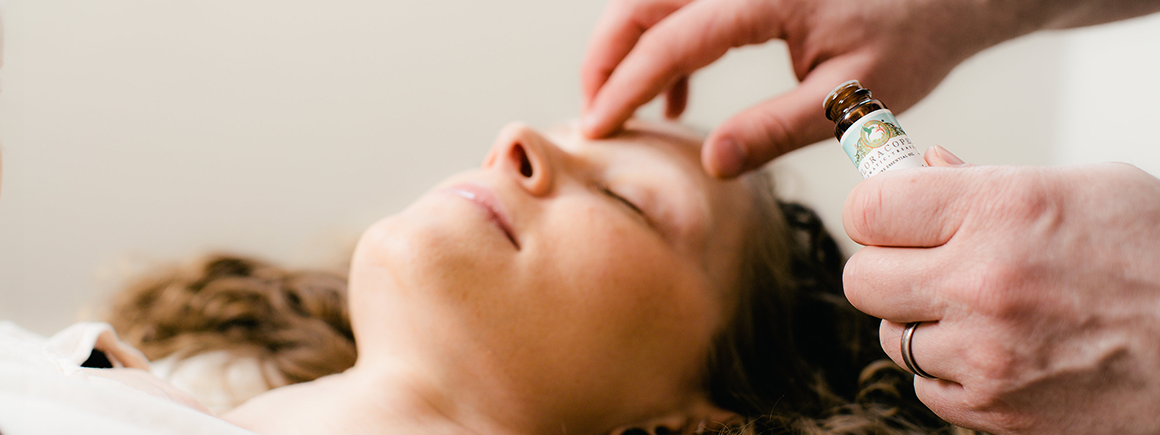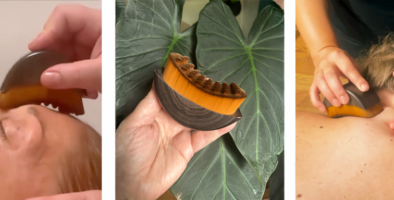6 Holistic Strategies for Strong Mental Health and Emotional Resilience
Support your mind by caring for your whole being.
“Self-care” is a buzzy word. Marketers often toss it around like sage during a smudging ceremony. Recognize, though, that prioritizing your well-being is a sign of strength. Calming baths, jogs, and journaling might be considered cliche; in reality, holistic strategies that take your body into account are a way to nurture your well-being and fortify your psychological fortress. Self-care reminds your body that your mental health matters.
And remember: There’s nothing wrong with conventional mental health treatments like medication and therapy; they’re helpful tools that holistic strategies can complement. What you do to help your brain work its best is up to you and any qualified professionals you choose to work with.
Schedule Breaks from Screens
If you spend much of your day on your computer or phone, it’s time to schedule some breaks. It can be all too easy to crank through your day without thinking about how much time you’ve spent staring at a screen. Constant screen exposure can increase anxiety on multiple levels: fatigue, reduced attention span, stifled creativity, and information overload (and eventual burnout). The blue light can interfere with your sleep.
Perhaps most nefarious is social media and consuming too much negative news, both of which can make you sad, lonely, or envious. Unhealthy comparisons can negatively impact your self-esteem.
Scheduled breaks to read, walk, meditate, or stare at a wall encourages mindfulness. Being fully present in the moment can reduce rumination, restore your ability to concentrate and stay focused on tasks, and give your mind a chance to wander. You may find that your stagnant creativity soars. You can start small: Block 30 minutes daily on your calendar right now!
Explore Energy Healing Practices
Chronic stress can exacerbate mental health problems. Energy healing methods, like Reiki and acupuncture, aim to lower stress.
During a Reiki session, a practitioner uses their hands to channel energy to you, either by lightly touching your body or by holding them above it. The goal is to remove energy blockages, restore balance, and make you feel great.
Acupuncture can release crucial mood-regulating endorphins and neurotransmitters like serotonin and dopamine. Acupuncture can also reduce physical discomfort, indirectly improving your mental health. No one likes to be in pain.
Lean Into Aromatherapy
Aromatherapy is a holistic healing practice that uses essential oils—highly concentrated plant extracts—to promote physical, mental, and emotional well-being. These essential oils are typically derived from various parts of plants, such as leaves, flowers, stems, and roots.
For instance, lavender calms and citrus scents cheer you up, while chamomile and bergamot reduce stress and anxiety. Aromatherapy is easy to get into: create a peaceful atmosphere with oil diffusers, candles, or rollers.
Master Breathwork Techniques
How we breathe impacts our nervous system. Deep, mindful, diaphragmatic breathing—inhaling deeply through your nose, letting your abdomen rise, and exhaling slowly through your mouth—reduces stress and anxiety, promoting relaxation. A few powerful techniques include:
- 4-7-8 breath: Inhale for a count of 4, hold for 7, and exhale for 8.
- Box breathing: Inhale for 4, hold for 4, exhale for 4, and hold for 4.
- Alternate nostril breathing: Use your thumb and pinky to alternate breaths in to and out of your left and right nostrils.
Pay attention to how different breathwork techniques affect you. Some may be more effective for stress reduction; others may help with focus or relaxation. Adapt your practice. Even just five minutes a day of dedicated breathing can help you cultivate a greater sense of calm and clarity.
Regulate emotions with Herbology
Chinese herbal supplements have a rich history in Traditional Chinese Medicine (TCM). When you take them with the guidance of a trained herbalist, they can help you better regulate your emotions. A TCM practitioner can help determine the right supplements for your needs.
For example, adaptogens, such as ashwagandha, rhodiola, and ginseng, help your body adapt to stress and maintain balance, supporting emotional resilience by reducing stress reactions—other herbs, like ginger, peppermint, and fennel, aid digestion. The gut-brain connection is well-established. Digest well, and you’re more apt to feel well.
Be Kind
Compassionate deeds release feel-good hormones, boosting your mood and fostering a positive outlook. Social interactions can combat feelings of loneliness and increase your sense of belonging, vital for mental health. All gestures, big and small, count: smile at a stranger, be a good listener, volunteer with a charity, or offer someone your seat on the subway. You’ll get an immediate mood boost.
And don’t forget to extend your benevolence to yourself: Nourish your body with good food, take yourself on a walk, clean your desk, schedule a relaxing massage or facial, and treat yourself with the same kindness and understanding that you would offer to a friend. Self-care isn’t selfish; it’s crucial to maintaining your mental health.




